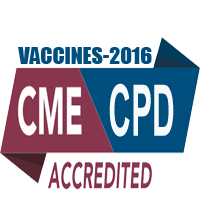
John N Galgiani
John N Galgiani University of Arizona College of Medicine, USA
Title: Vaccines to prevent coccidioidomycosis
Biography
Biography: John N Galgiani
Abstract
Coccidioidomycosis (San Joaquin Valley Fever) is a systemic fungal infection of the southwestern US and other parts of the western hemisphere. A third of infections results in many weeks to many months of disability and a small percentage are progressive and even life-threatening. Infection, even in those who develop complications, induces protective cellular immunity and suggests that a preventative vaccine strategy is biologically possible. Whole cell killed vaccines were not sufficiently immunogenic and recombinant protein-based vaccines were economically not feasible for this orphan disease. A gene (CPS1) of the corn pathogen, Cochliobolus, is involved in virulence. Deleting its homolog in Coccidioides posadasii produced Δ-cps1 which did not cause disease in three susceptible inbred mouse strains, including one that lacked T, B and NK cells. Using an inoculum one million times above the LD95 or infecting neutropenic mice also did not result in disease. Nearly all infecting spores failed to complete a full tissue-cycle of replication. Vaccination with 105 cfu of Δ-cps1, either subcutaneously or intranasally, protected mice from a lethal intranasal C. posadasii or C. immitis infection. Compared to unvaccinated mice, lung fungal burden was reduced approximately 5 logs and often no fungal growth was evident. Protection persists at least four months (longest delay thus far evaluated). Δ-cps1 grows nearly as quickly and produces nearly as many spores as wild type. As a result, manufacturing and formulation methodology should be feasible. We conclude that Δ-cps1 is an attractive candidate as a preventative vaccine for both dogs and humans.

